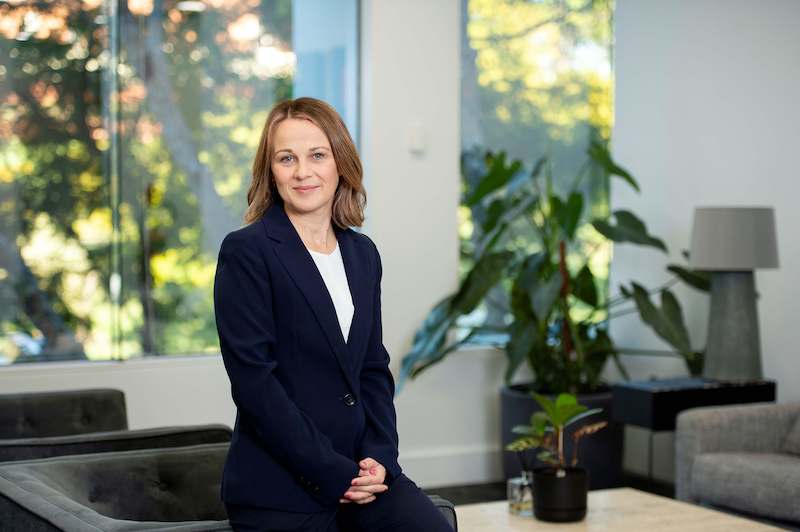
Who doesn’t get your super when you die?
For working Australians, superannuation is often one of the most important sources of wealth as we chip away at saving for retirement.
But what if you don’t end up using your super benefits, and die in the meantime? How can you make sure your hard-earned money will end up where you want it to – and give security to your loved ones?
One of the biggest mistakes we see is not understanding how to properly nominate your beneficiaries to receive your super when you pass away. There are many reasons for this, ranging from not reading the (extremely fine) fine print on your super fund’s website; having best intentions but never getting around to it; or – when you do get around to it – making a mistake on your nomination form that isn’t discovered until after it’s too late.
To explain – here are three categories of people who may miss out on getting your super, and why:
Spouse, child, dependant or estate… if you haven’t nominated them, if your nomination has lapsed, or if you have not signed your nomination correctly
A common misconception we hear is, “won’t my spouse automatically get my super?” but in reality, it isn’t that straightforward.
Only certain people qualify to get your super under the Superannuation Industry Supervision Act (“SIS Act”):
- a spouse (including de facto and same sex partner);
- a child (including stepchild);
- a person who is dependent on you;
- a person with whom you are in an interdependency relationship; and
- your estate (the Executor of your Will)
But to make sure an eligible person receives your super one day, you need to:
- Nominate the right person via a Binding Nomination Form, usually available to download from your super fund’s website
- Fill out the form as per the instructions (which includes making sure the % of your super adds up to 100%), sign the form in front of two independent witnesses, and send it back to your fund as soon as possible via the method given on the form (e.g. by mail or email)
- Update your nomination every 3 years, unless your fund allows you to make a non-lapsing binding nomination and you have selected this option on your form.
It’s also worth knowing that existing nominations aren’t automatically revoked if you marry, separate or divorce, or enter into a new de facto relationship. So, just like reviewing your Will, you should check your super nominations regularly, or any time you go through a major life change, to make sure you put your wishes in place.
Your sister, aunt, nephew, cousin, friend or charity… because they (usually) aren’t eligible
Unless your nominated person qualifies as a dependant under the SIS Act (see above), they are not eligible to receive your super from your fund directly when you die – even if you have named them on your nomination form.
If you want your close friend or cousin to receive your super, and they aren’t in any way dependent on you or in an interdependency relationship, then the only way to make sure they get it is to nominate your legal personal representative – Executor of your Will – as your beneficiary on the super nomination form.
Then (as long as your nomination form is valid and current when you pass away) your super fund will pay your death benefits into your estate, where the terms of your Will take over. Provided your Will is valid (and not contested… which is another story!) then your named beneficiary, even a friend, cousin or chosen charity, can successfully inherit your super proceeds if they form part of your estate.
Beneficiaries of your Will…because super may not automatically go into your estate
“I’ve just made a Will so surely all of my assets – including super – are covered?”
Again, this is a misguided assumption, because superannuation doesn’t automatically form part of your estate to be distributed according to the terms of your Will.
Not having a valid and current nomination in place for your super runs the risk of having it paid to someone who you did not intend.
Without a valid nomination, your super fund has discretion to distribute your super benefits to any of your eligible dependants and there is no guarantee who will get it or in what proportions.
In fact, your fund will usually need to gather details of all possible beneficiaries and their relationship and level of dependence on you, before considering the competing claims and making a final decision. This can create long delays and unnecessary stress for your loved ones, plus the risk of an unwanted outcome.
The best you can do to avoid that result is to put in place a binding nomination and, if possible, make sure it is non-lapsing (i.e. doesn’t expire unless you make a new one). If your super fund doesn’t allow for non-lapsing binding nominations, you will need to remember to update your nomination every 3 years or whenever your fund requests you to).
Estate planning and your super
Of course, even despite your best efforts, other factors – like losing mental capacity – can affect on your ability to make new super nominations in future.
It’s a great reminder to keep on top of those all-important updates to binding nominations before they expire, or review them when your circumstances change. Given how much Aussies now have in super – around $3.9 TRILLION as at March 2024, and increasing – this is not something you want to ignore or forget about.
By getting advice from an estate planning specialist who can talk to you about your super, you can make sure you have the right documents in place to provide for your loved ones one day, the way that you intend.
Brigitte was always meant to be at Solomon Hollett – so much she finds herself with her name on the front door, despite being no relation of Craig’s! Estate planning has been a common thread throughout her career. Before joining SHL, she focused on Wills and succession work, after having spent time in other roles within the trusts, estate planning and administration space, and some commercial and migration law. She has worked for professional trustee companies, smaller boutique firms and practices across a range of clients and wealth brackets. Her love for estate planning centres on getting to know clients and what really drives them, their family dynamics, goals and values. There are many interesting and tricky conversations, lots of “option-storming” and ultimately finding solutions that never look the same as the next matter given no two families are ever the same. Spending time with her two young children and husband is what Brigitte enjoys most, alongside culinary pursuits at home and sampling new restaurants. Ever since she can recall Brigitte has loved reading, analysing, language and writing, going so far as pulling together a fairly large, somewhat cryptic collection of poems that we will be strongly encouraging her to publish!

